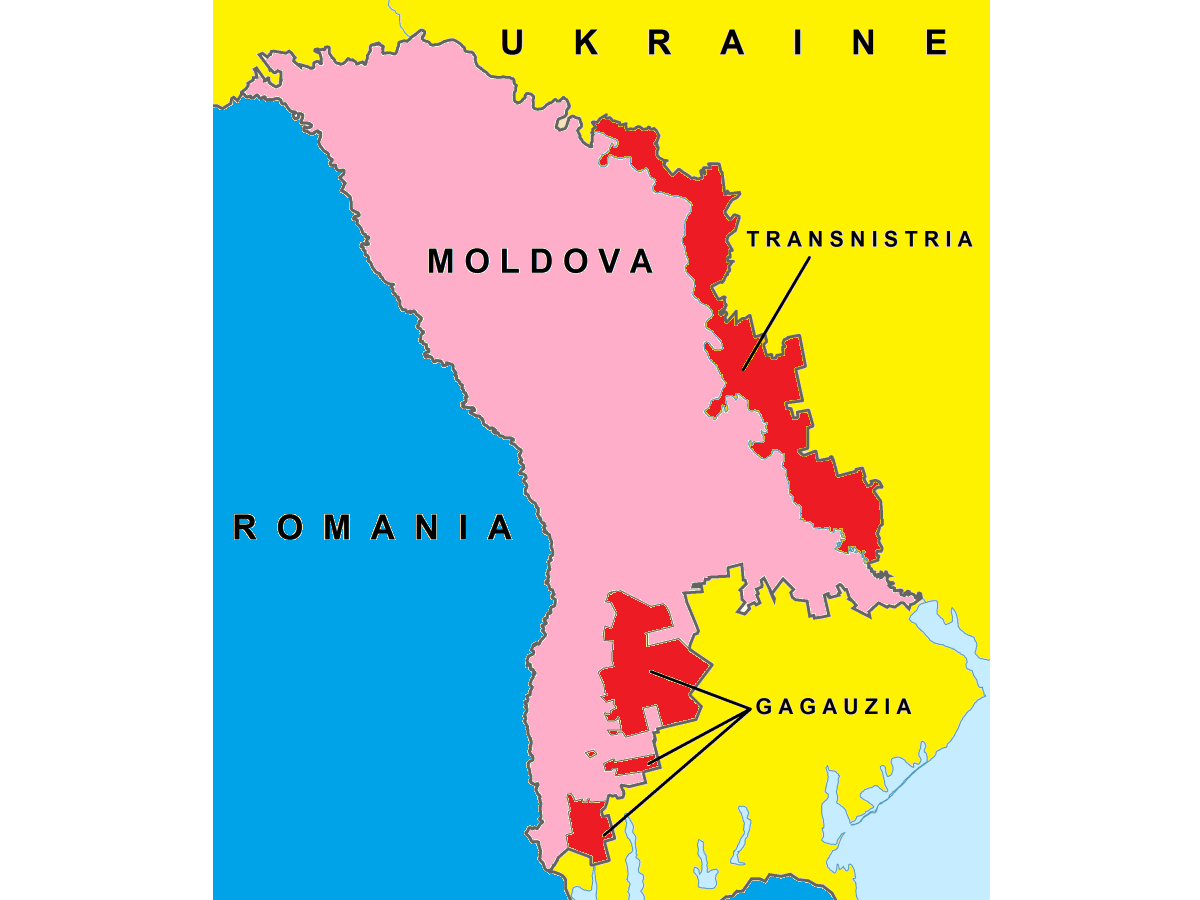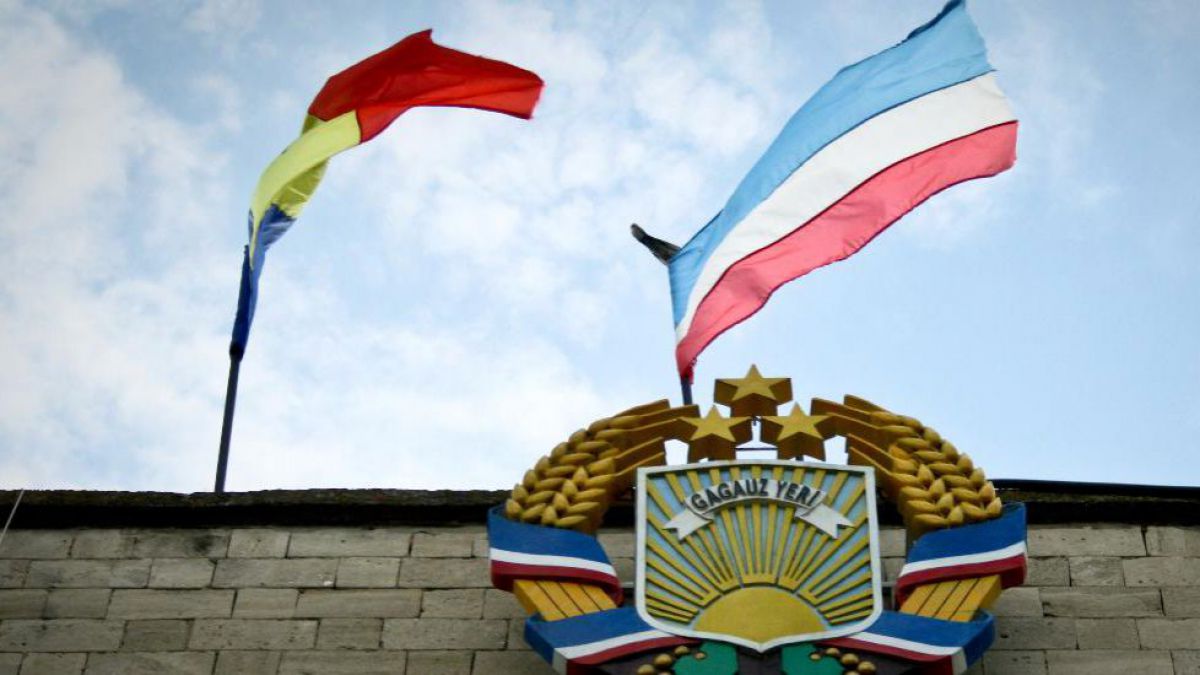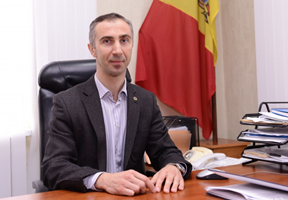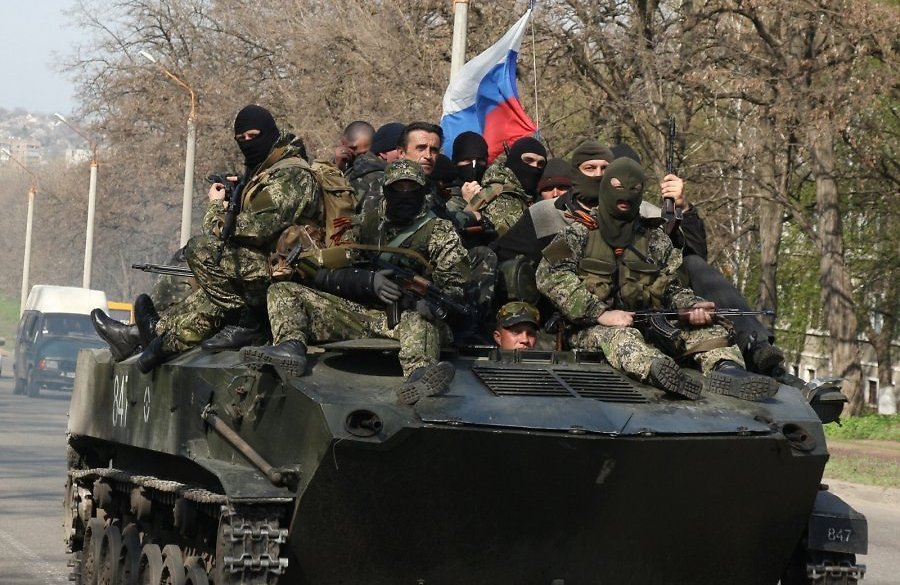What Moscow has done in Moldova, the de facto confederalization of that country and its division between eastern and western zones of influence, is what it hopes to do in Ukraine. The Russian approach there is thus important in its own right and in terms of what it means for Ukraine both now and in the future.
Those conclusions are suggested by Serhiy Ilchenko today on Kyiv’s Delovaya stolitsa portal, and they merit close attention not only in Kyiv but also in the West where many still refuse to recognize what Moscow’s goals are in Moldova and Ukraine as well as elsewhere.
Entitling his essay, “Why the Kremlin is Making a Confederation Out of Moldova,” the Kyiv commentator says that “having divided the republic into zones of influence with the consent of Chisinau, Moscow -- in addition to ensuring a permanent threat to Ukraine’s Odesa oblast -- may get a loophole in the sanctions regime and access to Western technology.”
According to Ilchenko, “the recent visit of Dmitry Rogozin to Moldova looks at first glance like the unconditional surrender by Chisinau of all its European positions,” especially when one contrasts it with the extremely negative way he was treated when he last visited that country in May 2014.
In general, the Kyiv commentator continues, “in recent years, Moldova has been very suspicious about Russian visitors especially those who want to visit Transdniestria and has allowed far from all of them to go there, even banning their entrance into the country for five years.”
But now, apparently out of nowhere, Ilchenko continues, Rogozin arrives “as the special representative of the president of the Russian Federation for Transdniestria, is received at the highest levels in Chisinau and without any obstacles makes a visit to separatist Tiraspol” on the same trip where he made “openly anti-Ukrainian declarations.”
At the same time, while in Chisinau, “Rogozin declared that Russia is interested in seeing ‘intensified contacts between Chisinau and Tiraspol directed toward the restoration of normal relations, above all in economics.” Significantly, Rogozin did not meet with pro-Russian opposition figures or talk about any broader political settlement.
Further, at least in public, the Russian visitor “did not mention the decision of the Moldovan parliament to limit the broadcast of Russian channels in Moldova,” even though the Russian foreign ministry had declared this “’an unfriendly act’” and the head of the Gagauz Autonomy said she would ignore the law as far as her republic was concerned.
These developments taken together create the impression that “in the course of preliminary meetings, Moscow and Chisinau had firmly agreed about the division of zones of influence” one looking West and one looking toward Moscow but with free movement of people and goods between them and to the broader communities of which each is a part.
Although no agreement was announced, its outlines are obvious, Ilchenko says; and they are what Moscow wants and a threat to both Moldova and Ukraine. Under them, “Moldova de facto is divided into zones of influence: European and Russian, with the formally unrecognized Transdniestria and the fully recognized autonomy in Gagauzia part of the latter.”
“Russia has successfully played the autonomies card,” he says; and “one cannot doubt that in the near term we will see a strengthening, even without this, of close ties between Tiraspol and Komrat, bypassing Chisinau,” although that by itself is far from the most important consequence of this division of Moldova.
“This division of spheres of influence will spread to all spheres of life, including information policy and civic freedoms. Thus, actions that won’t get anyone in trouble in the European part of Moldova will land him or her in jail in its Russian zone.” But at the same time, the ability to move people or goods between these will be unimpeded.
From a narrowly economic point of view, Ilchenko continues, “such a plan for Moldova is simply ideal.”
That means, he suggests, that Moscow can use Transdniestria as a base within Moldova to reach Europe, arguing that Transdniestria is part of Moldova and therefore should be treated as such by Europe. The breakaway republic thus becomes not only a place for the expansion of the Russian world but also a gateway to the West.
All that is worrisome, Ilchenko suggests; but there is a particular worry for Ukraine: “Both Russian zones [in Moldova] border Ukraine and will, like an acid, eat away at Odesa oblast next to them.” That has been happening for a long time, but “now it will occur with the knowledge and agreement of Chisinau.”
Related:
- Brexit and new challenges for Ukraine
- Russia's plans to create new "republics" in southwestern Ukraine
- Ukraine - first element of crisis to affect entire post-Soviet space, Portnikov says
- Kremlin official: Moscow can't sit by when ethnic Russians are "oppressed and persecuted" in former Soviet republics
- 'Feudal stability' in post-Soviet states points to collapse and chaos ahead, Portnikov says
- Moscow tries to divide and weaken Europe but its actions unite and expand it, Gudkov says





